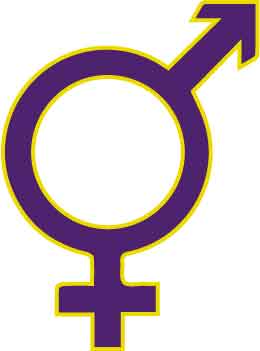Intersex Awareness Day
In honor of Intersex Awareness Day, the University of Wisconsin-Platteville Alliance gave a presentation on what it means to be intersex and what issues intersex people face. The event marked the anniversary of the first public demonstration by intersex people in America on Oct. 26, 1996, held outside the venue in Boston where the American Academy of Pediatrics was holding its annual conference. Intersex Awareness Day is an international day of grass-roots action to end shame, secrecy and unwanted genital cosmetic surgeries on intersex children.
According to Webster’s Dictionary, intersex is a naturally occurring variation in humans that is a combination of male and female biological characteristics, such as chromosomes or genitals, that can make doctors unable to assign their sex as distinctly male or female. Sex, like many other things, exists on a spectrum and cannot be contained to a rigid binary. Since as much as 4% of the population is intersex, this variation is much more common than one might think.
Parents oftentimes are frightened to raise a baby without a gender.
“They’re uncomfortable because you don’t fit into the neat categories that society has given us,” sophomore chemistry and forensic investigation major Riley Sasse said.
In the 1960s, doctors would often reassign intersex babies without the parents’ prior knowledge or consent. This would force the child to grow up with the gender identity that the doctor gave to them. In the following decades, some people who underwent these surgeries as children began to speak out against them as human rights violations. Some said they had been assigned the wrong gender, while others had many severe complications, including infertility, sexual dysfunction and chronic pain. This is ultimately why intersex awareness is so important.
“Once more people know about it, there can be more research done and more laws to protect intersex babies,” junior agriculture education major Jason Roth said.
If more people become aware of intersex, there is the possibility of introducing new legislation that would protect intersex babies and adults and their respective autonomy.




